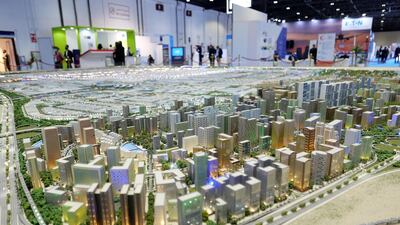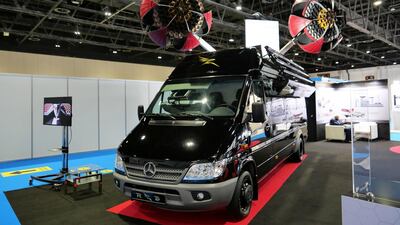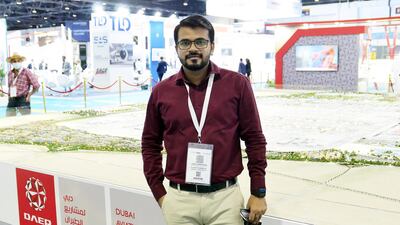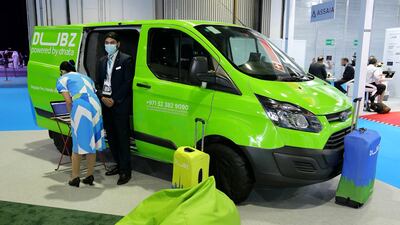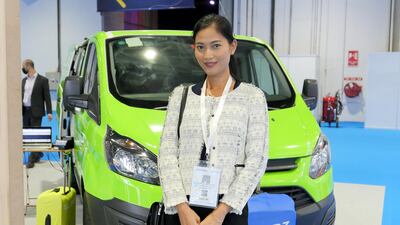Travel experts and enthusiasts from around the world gathered in Dubai this week for the Airport Show.
Visitors said the global rollout of the Covid-19 vaccine offered hope for a travel industry revival, but many were braced for a slow recovery.
During the three-day event, aviation and technology companies exhibited the future of airport innovation.
From biometric-based smart gates to self-sanitising tunnels, the pandemic has changed the airport experience forever.
As the industry's recovery continues, airports have reimagined every part of how passengers travel, from check-in to how meals are served in food courts and lounges.
There will be way less human interaction and certain pandemic precautions, such as mask wearing and regular sanitising, will stay in place for the foreseeable future.
Reynaldo Jr David, a Dubai resident from the Philippines, said he would like to see countries work together to implement more seamless travel protocols.
“The biggest issue expats like us face is the co-ordination between countries,” he said.
“Vaccinations are a key element in helping the travel industry rebound, but countries that have strong travel corridors need to be better aligned to make the travel experience easier for passengers.”
Mr David said they could liaise closer with each other to reduce major disruptions to travel, especially countries with a high concentration of expats.
Suggestions included exemptions for vaccinated passengers or GPS tracking protocols on arrival.
Mischelle Cacho, a partnerships manager for a media company in Dubai, said she is optimistic about the future of travel but said passengers “have to get used to the new normal”.
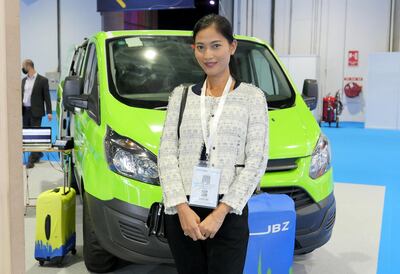
“The economy is slowly picking up but, personally, I think it will be about five years until things settle down for the sector,” she said.
“The vaccine roll-out is a great start but with new Covid-19 variants popping up, it will be an uphill battle.
“The future of travel will entail a lot more safety precautions, which will change the flight and journey experience for the better.
“In-person events like this offer a glimmer of hope that companies are adapting to this new norm, so travel, at some point, will pick up again.”
Since the start of the year, more international flights have resumed to several destinations from the Emirates and airlines are adding more flights to their schedules each week.
A growing number of countries are also slowly reducing or eliminating quarantine and Covid-19 testing requirements for those who have been fully vaccinated.
Just recently, a safe travel corridor between the UAE and Greece opened for fully vaccinated travellers to move between the two countries.
Under the agreement, passengers holding vaccination certificates issued by health authorities can travel to and from Greece without having to quarantine on arrival.
It follows similar agreements with Seychelles, Serbia and Bahrain.
For Zain Abedin Shaikh, manager of Al Hamraa Tourism LLC in Sharjah, such travel corridors are a welcome relief after a tough year.
“The travel market has been affected very hard by the pandemic, as a travel agency we have been hit hard,” he said.
“Countries really need to push forward their vaccination roll-out because as that happens, governments and airlines will loosen restrictions.
“The core of our business is travel packages between the UAE and South Asia, countries like Pakistan and India, and flight suspensions result in a slow-down in business.
“Reducing the risk of spread is a priority but there has to be a balance, which is where the vaccination plays a part.”


